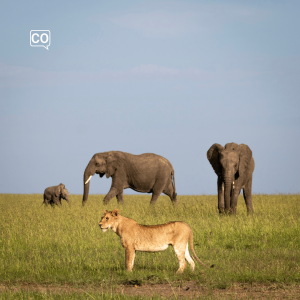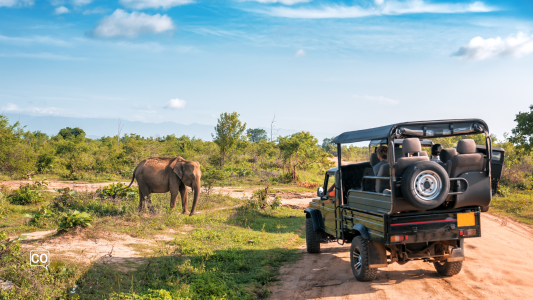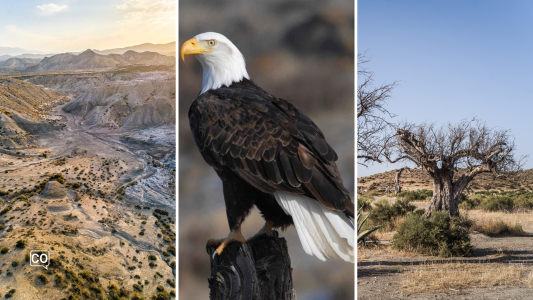En safari
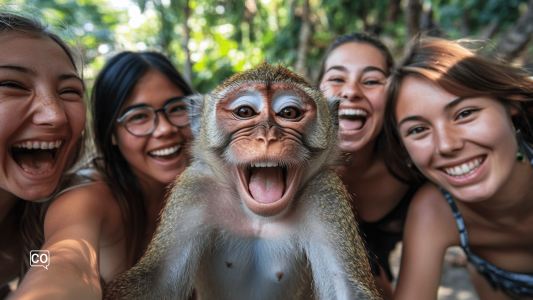
Learning goals:
- Vocabulario sobre continentes y paisajes exóticos (Vocabulary about exotic continents and landscapes)
- Los comparativos irregulares (Irregular Comparatives)
- El desierto de Tabernas: el Hollywood español (The Tabernas Desert: the Spanish Hollywood)
Learning module 2 (A2): Naturaleza y medio ambiente (Nature and environment)
Recap exercises of the previous lesson
Teaching guidelines +/- 60 minutes
Core vocabulary (10)

El desierto africano es más interesante que la selva.
(The African desert is more interesting than the jungle.)
El desierto
(The desert)

Yo me alejo del grupo para respirar.
(I move away from the group to breathe.)
Alejarse
(To move away)
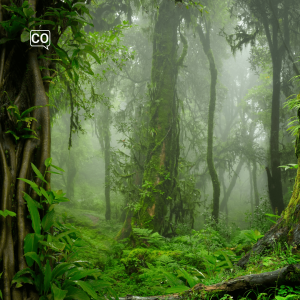
El elefante africano es el animal más grande en la selva.
(The African elephant is the largest animal in the jungle.)
La selva
(The jungle)
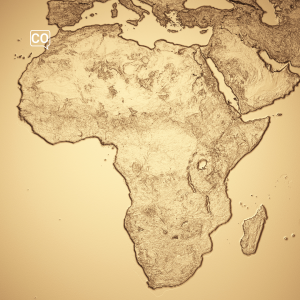
Los elefantes de África son más grandes que los de otros continentes.
(African elephants are larger than those from other continents.)
África
(Africa)
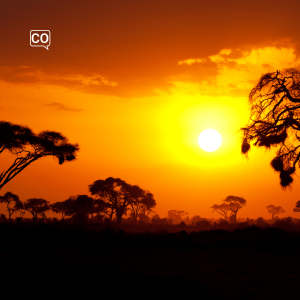
El desierto es un lugar africanísimo por su clima.
(The desert is an extremely African place because of its climate.)
Africano
(African)
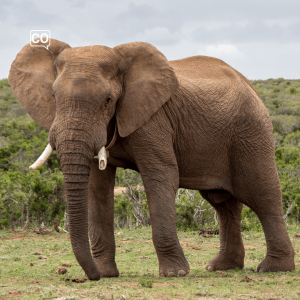
En África puedes ver el elefante africano salvaje.
(In Africa, you can see the wild African elephant.)
El elefante
(The elephant)
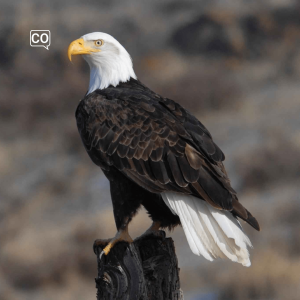
El águila es uno de los animales más interesantes del safari.
(The eagle is one of the most interesting animals on the safari.)
El águila
(The eagle)
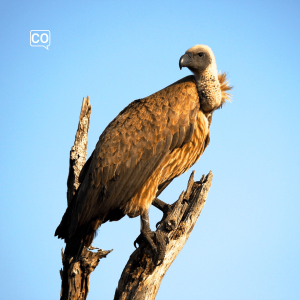
El buitre es uno de los animales más fascinantes del desierto africano.
(The vulture is one of the most fascinating animals in the African desert.)
El buitre
(The vulture)
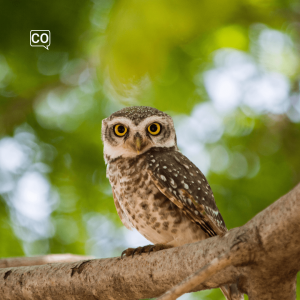
El búho es uno de los animales más misteriosos del desierto africano.
(The owl is one of the most mysterious animals of the African desert.)
El búho
(The owl)
Listening materials
Our listening materials implement the verbs, vocabulary and grammar topics of this lesson. Audio and video available!
A2.12.1 Diálogo: Un safari en África
Spanish A2.12.1 A safari in Africa
Pedro y Ana hablan sobre su safari en África. Comparan animales mientras recuerdan lo que vieron en la selva y el desierto.
(Pedro and Ana talk about their safari in Africa. They compare animals as they remember what they saw in the jungle and the desert.)
Teaching guidelines +/- 15 minutes
A2.12.2 Gramática: Los comparativos irregulares
Spanish A2.12.2 Irregular Comparatives
(Irregular comparatives in Spanish are adjectives that completely change their form when compared. Instead of adding "more" or "less" in front of the adjective, these adjectives have special forms.)
Teaching guidelines +/- 15 minutes
A2.12.3 Cuento corto: Una aventura salvaje
Spanish A2.12.3 A Wild Adventure
Una aventura en África donde se ven animales salvajes como el elefante, el búho y el buitre. Comparan a los animales en la selva y el desierto.
(An adventure in Africa where you can see wild animals like the elephant, the owl, and the vulture. They compare the animals in the jungle and the desert.)
Teaching guidelines +/- 15 minutes
A2.12.4 Cultura: El desierto de Tabernas: el Hollywood español
Spanish A2.12.4 The Tabernas Desert: the Spanish Hollywood
El Desierto de Tabernas es famoso porque allí se han grabado muchas películas del Oeste. Es un lugar en Almería, España, conocido como el Hollywood europeo.
(The Tabernas Desert is famous because many Western films have been shot there. It is a place in Almería, Spain, known as the European Hollywood.)
Teaching guidelines +/- 10 minutes
Exercises
These exercises can be done together during conversation lessons or as homework.
Exercise 1: Find the words
Instruction: Find the words, mark them and make sentences with the words.
Show answers Show hintsHints
African , To move away , The desert , The vulture , The jungle , The owl
Answers
Score: 0/6
| La selva | (The jungle) |
| El buitre | (The vulture) |
| Alejarse | (To move away) |
| Africano | (African) |
| El búho | (The owl) |
| El desierto | (The desert) |
Exercise 2: Reorder sentences
Instruction: The words in these sentences have been shuffled! Sort them so that they make a valid sentence again and translate.
Show answers Show translationExercise 3: Translate and make sentences
Instruction: Translate the words and phrases below and use it in a conversation or text.
Show answersExercise 4: Translate and use in a sentence
Instruction: Translate and say the word out loud. Use the word in a sentence.
Show translation|
1.
El águila
|
(The eagle) |
|
2.
El búho
|
(The owl) |
|
3.
El desierto
|
(The desert) |
|
4.
Salvaje
|
(Wild) |
|
5.
Alejarse
|
(To move away) |
Exercise 5: Conjugación verbal
Instruction: Choose the correct word, read the sentence out loud and translate.
Show answers Show translationVer (Pretérito perfecto, indicativo)
1. Tú ... a los elefantes en la selva.
2. Yo ... a los águilas volando.
3. Ellos ... a muchos animales durante sus vacaciones.
4. Él ... a todos los animales salvajes.
5. Nosotros ... a un búho por la noche.
Exercise 6: Irregular Comparatives
Instruction: Choose the correct word, read the sentence out loud and translate.
Show answers Show translationmenor, mayor, mejor, peor
1. Malo: El desierto es ... para los elefantes que la selva africana.
2. Malo: ¿Es el buitre salvaje ... en buscar comida que el águila?
3. Grande: El elefante es el ... animal de todos los animales de la selva.
4. Bueno: El águila ve ... que el buitre.
5. Bueno: La selva es ... para el águila que el desierto.
6. Malo: El águila es ... volando bajo que el búho.
7. Grande: El águila es ... que el búho.
8. Pequeño: El búho es ... que el águila pero vuela muy bien de noche.
Exercise 7: Translate and make sentences
Instruction: Translate the words and phrases below and use it in a conversation or text.
Show answersAppendix 1: Extended vocabulary table
Core vocabulary
(10):
Verbs: 1,
Adjectives: 2,
Nouns: 7,
Context vocabulary:
9
| Spanish | English |
|---|---|
| águila | Eagle |
| Africano | African |
| Africanos | African |
| Alejan | Move away |
| Alejarse | To move away |
| Alejo | I move away |
| Búhos | Owls |
| El buitre | The vulture |
| El búho | The owl |
| El desierto | The desert |
| El elefante | The elephant |
| El águila | The eagle |
| Elefantes | Elephants |
| La selva | The jungle |
| Salvaje | Wild |
| Salvajes | Wild |
| África | Africa |
| Águila | Eagle |
| Águilas | Eagles |
Appendix 2: Verb conjugation tables for this lesson
Ver (to see)
Exercises and examples phrases
- yo he visto I have seen
- tú has visto You have seen
- él/ella ha visto He has seen
- nosotros/nosotras hemos visto we have seen
- vosotros/vosotras habéis visto you have seen
- ellos/ellas han visto They have seen
Exercise: Verb conjugation
Instruction: Choose the correct word, read the sentence out loud and translate.
Show answers Show translationVer (Pretérito perfecto, indicativo)
1. Tú ... a los elefantes en la selva.
2. Yo ... a los águilas volando.
3. Ellos ... a muchos animales durante sus vacaciones.
4. Él ... a todos los animales salvajes.
5. Nosotros ... a un búho por la noche.
